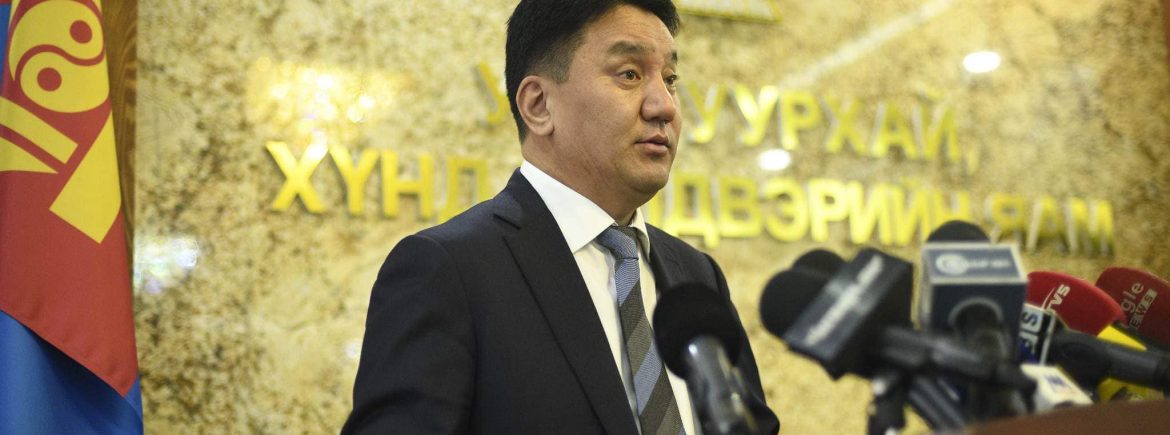To the esteemed veterans who have dedicated their labor, efforts, and dedication to the development of Mongolia’s petroleum sector, to all current professionals in the field, to scientists, researchers, and the younger generation, I extend my heartfelt congratulations on the historic 83rd anniversary of the establishment and development of the petroleum sector in Mongolia. On behalf of the Government of Mongolia and in my personal capacity, I express my sincere appreciation and best wishes for success, happiness, and prosperity in your lives.
The petroleum sector in Mongolia began with the February 28, 1941 resolution No. 15 of the Council of Ministers of the Mongolian People’s Republic, which approved the transfer of certain buildings, facilities, and technical equipment from the “Soyuznefteksport” representative office. Consequently, a Department for Petroleum Product Sales was established under the then Ministry of Transport. Over the past 83 years, the sector has grown into one of Mongolia’s strategically significant industries, contributing significantly to the country’s social and economic growth.
Historical records indicate that Mongolia began using petroleum products in the 1920s. As the country’s economy and society have developed, the demand for fuel and petroleum products has increased. Today, domestic importers and distributors ensure a reliable and continuous supply of petroleum products through their distribution networks, serving provinces, districts, and local communities.
It is also important to highlight that the Government of Mongolia has been implementing necessary measures to ensure stable and reliable petroleum product supply, diversify import sources, and expand and stabilize cooperation.
In 1940, under the leadership of Mongolian geologist J. Dugersuren and Soviet geologist Y.S. Zhelubovsky, the Eastern Expedition’s 17th Unit conducted exploration in the Zuunbayan Basin, marking the first discovery of petroleum in Mongolia.
Over the following decade, over 100 promising structures were identified and evaluated in Nyalga, Dornogovi, Choibalsan, Umnugovi, and Tamsag Basins, leading to the discovery of the Zuunbayan and Tsagaan Els oil fields.
Based on these discoveries, the Zuunbayan Oil Refinery was constructed and commissioned in 1949. Between 1950 and 1969, Mongolia extracted and refined over 500,000 tons of crude oil, covering a significant portion of the country’s fuel demand. This is a historical achievement that we can take great pride in.
Successive Mongolian governments have continuously aimed to reduce dependence on imported fuel and build a domestic oil refinery as a vital economic and strategic goal. The State Great Khural (Parliament) and the Government of Mongolia, with concessional financing from India, decided to establish an Oil Refinery in Altanshiree, Dornogovi Province, marking a new milestone in Mongolia’s petroleum sector history.
Since the 1990s, Mongolia has revived petroleum exploration, identifying 39 prospective exploration areas nationwide. Currently:
- 4 sites are under commercial oil production,
- 9 sites are under petroleum exploration, and
- 6 sites are under unconventional petroleum exploration (coalbed methane gas).
These activities are being carried out under Production Sharing Agreements (PSA) with government approval.
Over the past 30 years, approximately $4.6 billion has been invested in petroleum exploration and research, leading to the identification of:
- 332.64 million tons of proven crude oil reserves, and
- 43.258 million tons of commercially recoverable reserves, which have been officially registered in Mongolia’s Unified Mineral Reserves Database.
Between 1996 and 2023, Mongolia’s major oil fields Toson-Uul, Tamsag, Zuunbayan, and Tsagaan Els produced 10.4 million tons of crude oil for export, generating 2.5 trillion MNT in revenue for the state budget, significantly contributing to national economic development.
On this historic 83rd anniversary, I extend my deepest gratitude to the veterans who built the petroleum sector, as well as to the professionals, researchers, and workers who continue to dedicate their knowledge, skills, and efforts to its growth.
Minister of Mining and Heavy Industry

J.Ganbaatar

